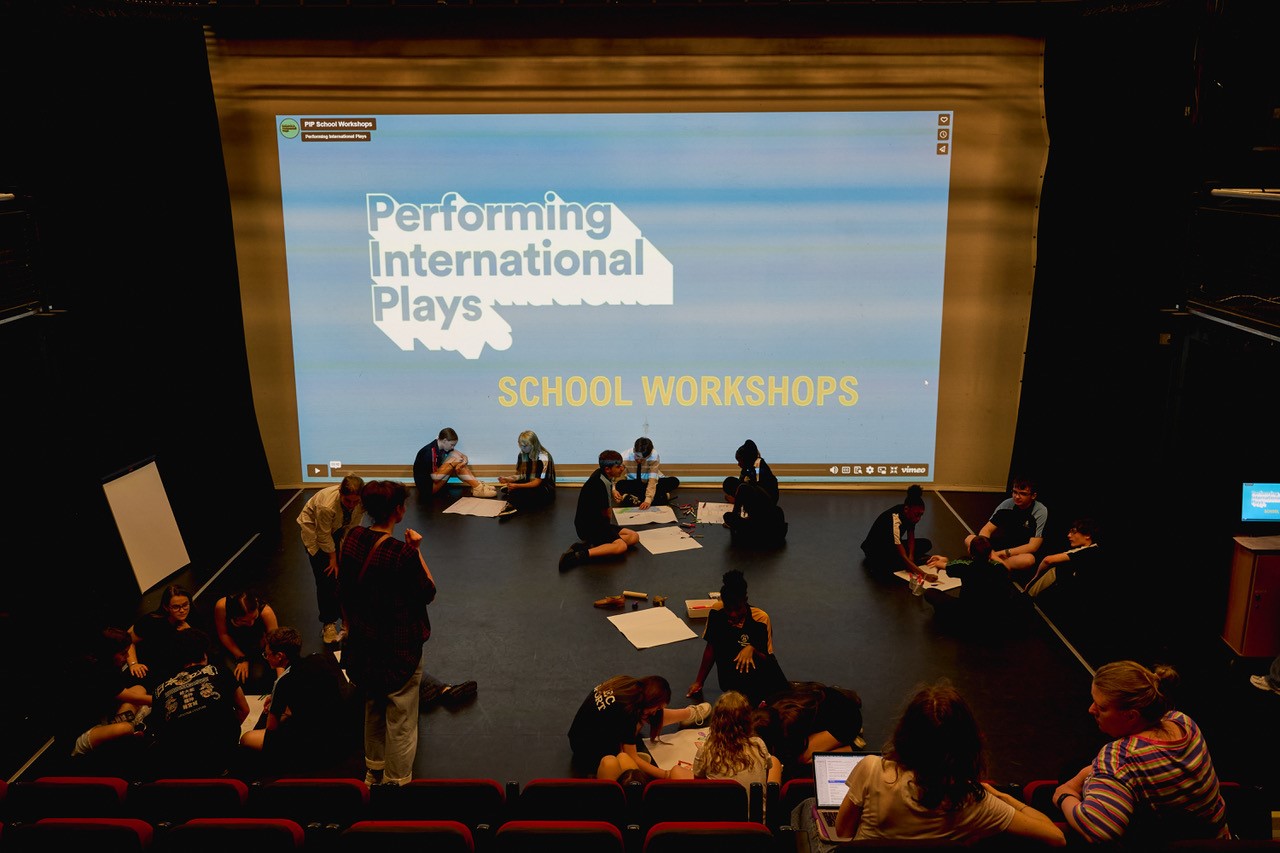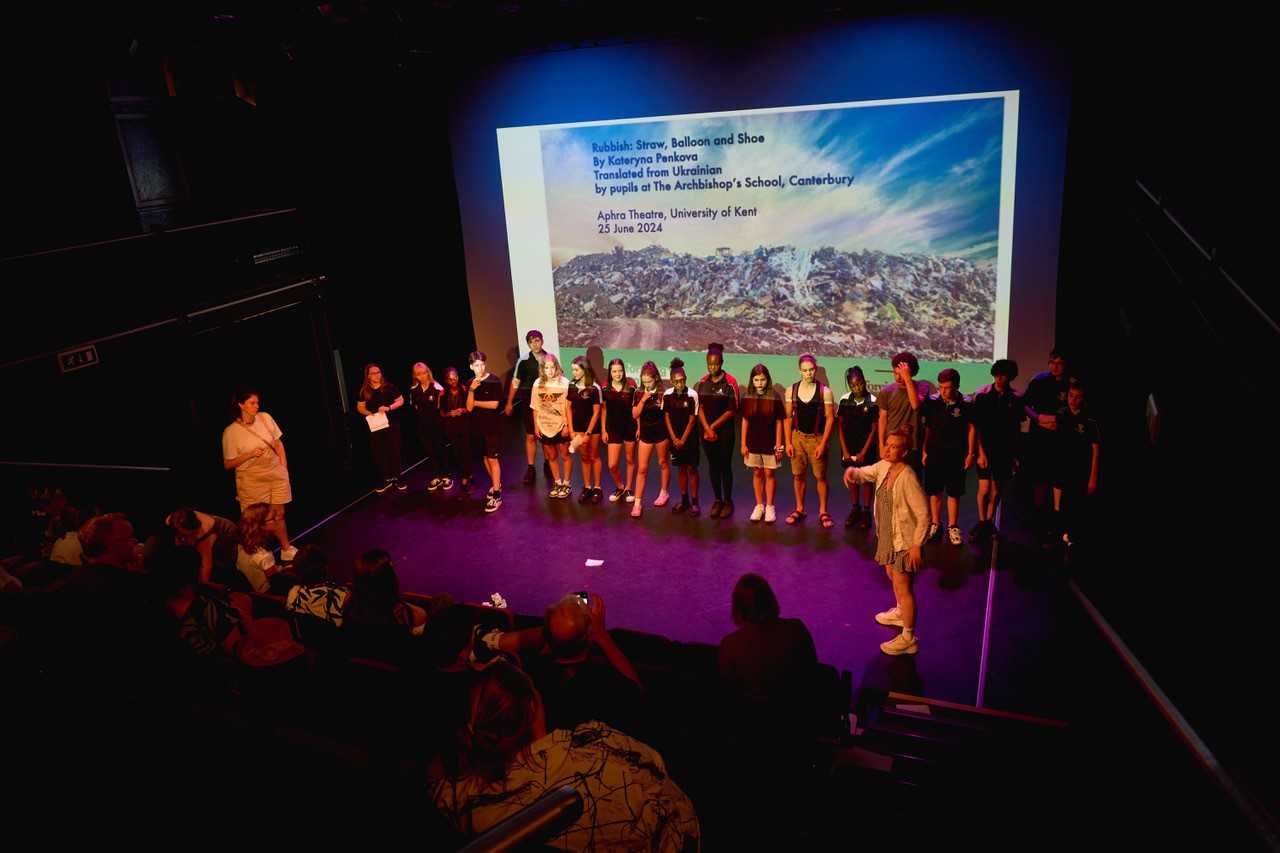Margherita Laera Senior Lecturer in Drama and Theatre shares her experience of working with migrant secondary school pupils in Canterbury on this valuable project.
‘One of the most enriching work experiences I have had recently, has been working with Foreign Affairs theatre company on Performing International Plays school workshops, engaging secondary-school pupils and teachers with plays from around the world, often in translation, to foster love, curiosity and respect for global stories. Using international plays as a tool for social justice and representation through an inclusive pedagogy, we have made space for stories that rarely see the limelight but that matter to all, especially to those who don’t feel represented by the curriculum.
We have worked with all kinds of schools, 16 across the country this year, from the most underserved to the most privileged, because we believe that every single young person needs to have a chance to experience and respect stories and characters that emerge from other cultures. As well as at The Royal Court Theatre in London. However, one of these events recently took place closer to home, on campus, in the form of a two-day theatre translation workshop with Ukrainian refugee students and British GCSE Drama students from The Archbishops’ School in Canterbury. Together they chose and translated a children’s play from Ukrainian to English, ‘Rubbish: Straw, Balloon and Shoe’ by Kateryna Penkova which they performed in front of an audience on the second day of the workshop.
We are incredibly proud that the feedback on our workshops from pupils and teachers has been overwhelmingly positive.
“The staff made us want to learn more about our cultures and respect people for who they are”, Workshop Participant
“I noticed students from racially minoritised groups taking the lead in discussions” Teacher
Teachers have highlighted that the workshops helped diverse pupils feel validated and recognised, and supported everyone in acquiring the skills that support English literacy. As well as engaging with social issues, building confidence, working in groups and speaking in front of a large group, improving their wellbeing, engagement and attainment at school and, for the English native speakers, practising foreign language skills.
We have lots to celebrate at the end of our fist academic year. Thanks to the trust of teachers and to our funders – ACE, AHRC, South East Cultural Innovation Forum and University of Kent.
Are you interested in our work? Get in touch! m.laera@kent.ac.uk’

